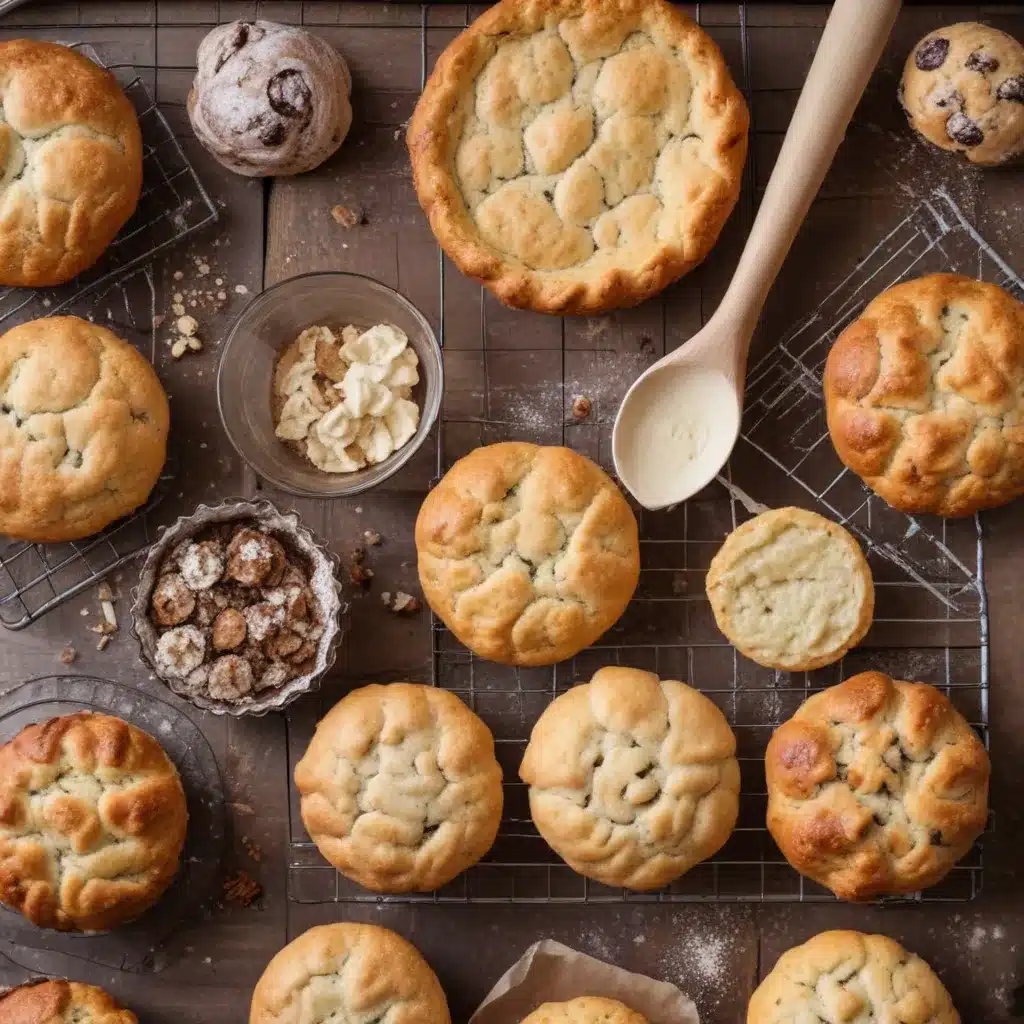
Understanding the Science of Baking
Baking is both an art and a science, and understanding the fundamental principles is key to becoming a successful baker. At its core, baking is all about chemistry – the precise balance of ingredients, the role of leavening agents, and the impact of temperature and time. As a beginner, it’s essential to grasp these scientific concepts to ensure consistent, high-quality results in your baked goods.
One of the most important baking skills to master is accurate measurement. Unlike cooking, where you can often get away with estimating quantities, baking requires meticulous precision. Weights, not volumes, are the gold standard for accurately measuring ingredients. This article explains the importance of proper measuring techniques and how to convert between weight and volume measurements.
Another key aspect of baking science is understanding the roles of different ingredients. Flour, for example, provides structure and texture, while fats like butter or oil contribute tenderness and richness. Leavening agents, such as baking soda or baking powder, are responsible for creating the rise and aeration that give baked goods their light, fluffy qualities. Mastering the interplay between these ingredients is crucial for baking success.
Essential Baking Techniques
Mise en Place
One of the foundational techniques for any baker is mise en place, a French term meaning “everything in its place.” This organizational approach involves gathering and preparing all your ingredients and equipment before you begin baking. By having everything ready to go, you can work efficiently and avoid the stress of searching for items or measuring ingredients on the fly. As mentioned in this source, mise en place is vital for ensuring time-sensitive steps are carried out properly.
Mixing and Kneading
Proper mixing and kneading techniques are essential for developing the desired texture in your baked goods. Different mixing methods, such as the creaming method, muffin method, or rubbing in, are suited for different types of recipes. Understanding how each technique affects gluten development and aeration is crucial. Kneading dough by hand or with a stand mixer helps build the structure and chewiness that characterizes many yeast-based breads and pastries.
Whisking and Folding
When you want to incorporate air and create a light, airy texture, whisking and folding are fundamental techniques to master. Whisking incorporates air into batters and meringues, while folding gently incorporates delicate ingredients like whipped egg whites or fresh fruit without deflating the mixture. These techniques are particularly important for dishes like sponge cakes, soufflés, and certain types of cookies.
Proofing and Baking
Proofing, the process of allowing dough to rise before baking, is a critical step that enables yeast-based baked goods to develop their signature texture and flavor. Paying close attention to temperature and timing during proofing can make a significant difference in the final outcome.
Baking itself also requires careful temperature control and monitoring. Understanding how to adjust oven temperature and baking time based on the recipe and type of baked good is essential for achieving the perfect doneness, color, and texture.
Essential Baking Tools and Equipment
While you don’t need a professional-grade kitchen to start baking, there are some essential tools and equipment that can make the process easier and more successful. At a minimum, you’ll want the following:
- Digital scale: For accurately measuring ingredients by weight, which is the gold standard in baking.
- Mixing bowls: A set of bowls in various sizes to handle different recipes and mixing techniques.
- Whisk: For incorporating air and creating light, airy batters and meringues.
- Rubber spatula: Invaluable for folding, scraping, and ensuring all ingredients are fully incorporated.
- Pans and baking sheets: The right pans, from loaf pans to sheet trays, can make a big difference in your baked goods.
- Oven thermometer: Ensures your oven is accurately calibrated for precise temperature control.
As you progress in your baking journey, you may want to invest in additional tools like a stand mixer, pastry cutter, or specialty baking pans. But the basics listed above are a great starting point for any beginner baker. The Reddit thread on essential skills for home cooks highlighted the importance of mastering fundamental techniques, which is equally applicable to baking.
Developing Your Baking Repertoire
Once you have a solid grasp of the science and essential techniques, it’s time to start building your baking repertoire. Begin by mastering a few simple, versatile recipes that can serve as a foundation for more complex creations. Some great starting points include:
- Chocolate chip cookies: A classic that allows you to practice mixing, portioning, and baking techniques.
- Quick breads: Like banana bread or zucchini bread, which teach you about leavening and ingredient ratios.
- Buttercream frosting: A versatile skill that can be applied to cakes, cupcakes, and more.
- Pie dough: Mastering this basic pastry dough opens the door to a world of pie and tart recipes.
As you gain confidence, gradually expand your baking skills by tackling more advanced recipes and techniques, such as yeast-based breads, laminated doughs, or intricate cake decorating. The Reddit thread on starting to cook highlights the importance of not feeling overwhelmed and taking it one step at a time.
Embracing the Joy of Baking
Baking can be a tremendously rewarding and creative endeavor, but it’s also a journey. With patience, practice, and a willingness to learn, you can develop the skills and confidence to create truly impressive baked goods. Remember, the more you bake, the more comfortable you’ll become with the process, and the more you’ll be able to experiment and put your own unique spin on recipes.
Embrace the science, master the techniques, and allow your creativity to shine. Whether you’re baking for yourself, your family, or a special occasion, the satisfaction of pulling a freshly baked treat out of the oven is unparalleled. So preheat your oven, gather your ingredients, and get ready to embark on an exciting baking adventure. The Kitchen Warrior blog is here to support you every step of the way.


